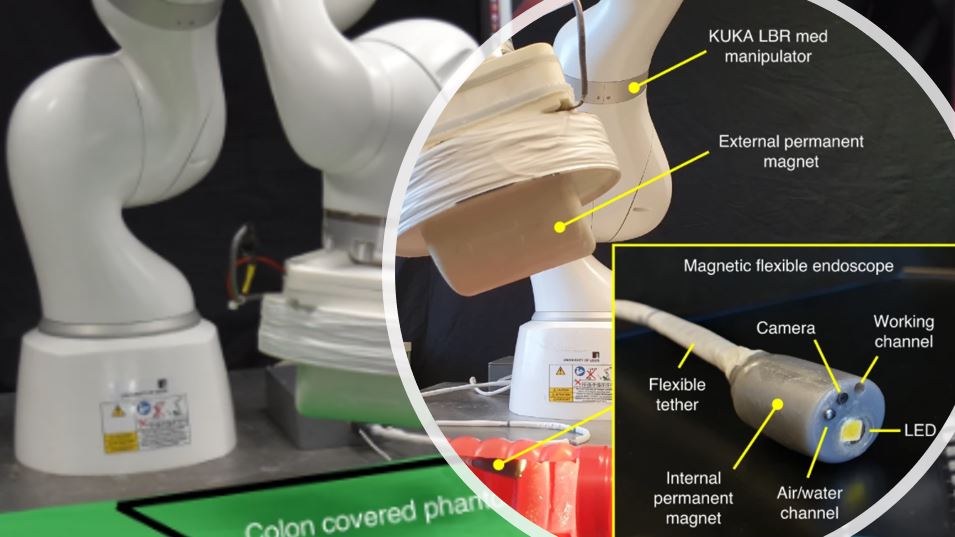News & Trends - MedTech & Diagnostics
Human-guided robot to perform colonoscopies

MedTech News: International researchers say that a human-guided robot could be performing colonoscopies in the near future.
Regular colonoscopies are expensive, painful and require highly-trained practitioners to perform them, and the researchers say their semi-automated robot can move using machine intelligence, and analyses the images it takes to automatically guide itself. They add that the new system could mean the procedures are easier to perform and potentially assist in the early detection of illnesses.
A robot that can perform guided colonoscopy is presented in a paper published this week in Nature Machine Intelligence. The technology simplifies automated colonoscopy procedures and can also be applied to other procedures such as pancreatic endoscopy, bronchoscopy and gastroscopy.
Traditional colonoscopies are expensive, painful and require highly skilled medical practitioners to be fully aware of the probe’s position while guiding it through the colon.
New approaches using magnetic probes that are guided by a magnet outside of the body have been recently developed. The external magnet can be precisely controlled by a robotic arm, which allows for complex movement inside the body. However, this method is complicated and still requires the user to be highly trained in order guide the robot arm and the magnetic probe.
James Martin, Bruno Scaglioni and colleagues combined the use of robotics, computer vision and advanced control to offer an intuitive and effective endoscopic system. The semi-automated robotic system relies on simple movement commands from the user. The probe moves using machine intelligence and image analysis to automatically guide itself along the colon. The authors tested this approach in an artificial colon model as well as in two pigs. The users performing the procedures found this new system to be much more manageable than the non-intelligent method.
Millions of colonoscopies are performed every year globally, and the need for this procedure is expected to rise by approximately 16% in the next decade. The diagnosis of colorectal cancer — the third most common form of cancer worldwide — relies heavily on colonoscopies. Bowel (or colorectal) cancer kills almost 6,000 people in Australia each year and 700,000 worldwide.
By making colonoscopy easier to perform, this technology might have the potential to increase the ubiquity of the procedure and impact the early detection of colorectal cancer.
News & Trends - MedTech & Diagnostics

Stryker partners with local researchers to advance shoulder joint surgery
MedTech & Diagnostics News: Aimed at improving shoulder joint surgery and reducing surgical revision rates, Dr Maxence Lavaill from QUT […]
MoreNews & Trends - Pharmaceuticals

Over two-thirds of Aussies missing healthcare appointments
Pharma News: Over 70% of Australians have postponed or cancelled healthcare appointments in the last 12 months. The primary reason […]
MoreNews & Trends - Pharmaceuticals

Opposition decries incremental change as New Zealand government defends Pharmac budget
Pharma News: New Zealand’s Associate Health Minister has made headlines by unveiling Pharmac’s largest ever budget of $6.294 billion over […]
MoreMedical

Telehealth’s 10-year leap in 10 days: Reshaping hospital EDs
Medical: As overcrowding and ramping continue to challenge emergency departments across Australia, the concept of virtual emergency departments (EDs) emerges […]
More